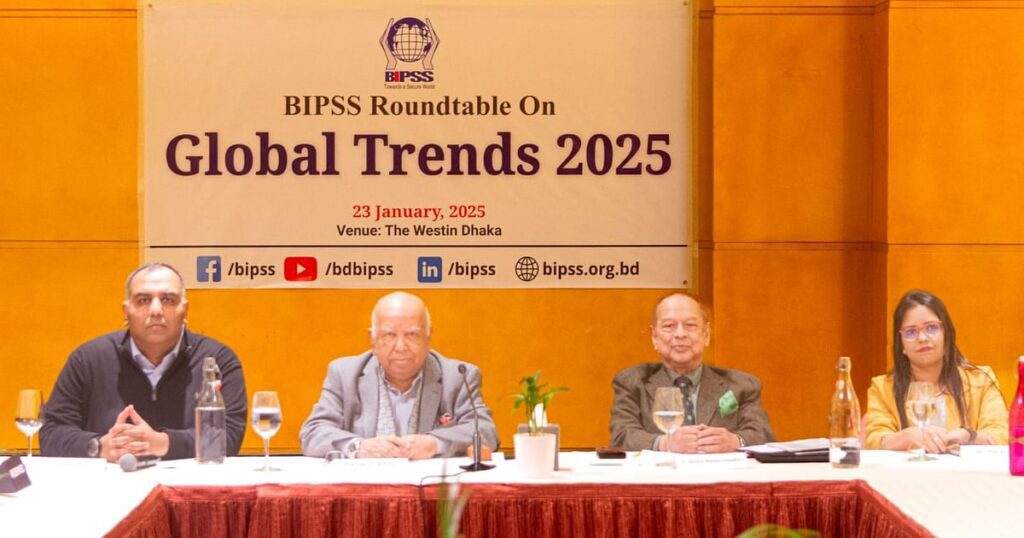Iftekhar Ahmed Chowdhury also discussed how rising nationalism and populism are eroding multilateral institutions, leading to a fragmented international order where “might is right.” He highlighted three dominant schools of thought shaping international relations: Francis Fukuyama’s end of history thesis, Samuel Huntington’s clash of civilisations, and John Mearsheimer’s offensive realism. He concluded by stressing that nations must prioritise their own interests while preparing for an increasingly Hobbesian world order.
Assistant Professor Iffat Anjum focused on South Asia’s economic and political landscape, describing it as being in a transitional phase marked by uncertainty. She identified key challenges facing South Asian countries, including inflation, unemployment, political instability, and climate-induced displacement.
For instance: despite being recognised as an emerging economy with a 6.4Per cent growth rate, Bangladesh faces inflationary pressures, energy shortages, and underutilisation of its demographic dividend. ‘The Modi government’s third term has brought both opportunities and challenges, including heightened tensions with Pakistan. The Taliban regime continues to grapple with legitimacy concerns. Economic crises persist under its newly elected left-leaning government.
Iffat Anjum also highlighted gender disparities in employment across South Asia and called for greater regional cooperation through platforms like SAARC to address shared challenges such as migration policies and climate-induced displacement. She emphasised that South Asia must leverage its youthful population while addressing systemic inequalities to achieve sustainable growth.

